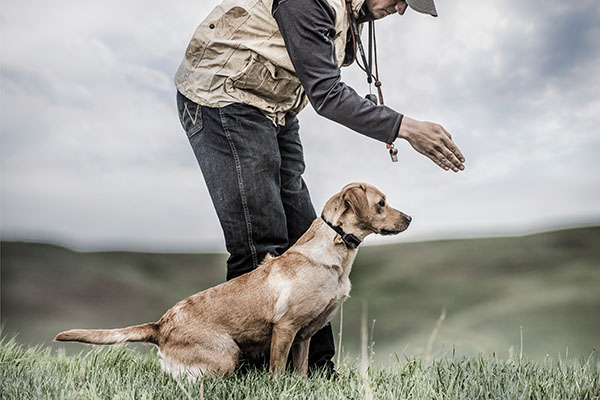
Feb 25, 2019
Canine Corner: Another Year, Another Chance to Improve

PHOTO BY LEE THOMAS KJOS
by JOSH MILLER/SportDOG®
Another year has come and gone, and with it, another duck season. It’s depressing, I know... but as we dream of cupped wings and spend that dreaded post-season clean-up time in the garage, we can also take time to reflect on the season and how to progress with our four-legged partner.
Most people head into the New Year with gym memberships and diet plans. But you’re a duck hunter, so you probably spend all year thinking about ducks and dogs. Why would we head into this year any differently? Now, I am not saying we aren’t going to do some self-improvement this year (we will get to that), but let’s put together our own New Year’s resolution. A duck hunter’s resolution.
At this time of year, I like to put on paper what this past season looked like. What did my dog do well? What did he struggle with? What were some specific situations where problems appeared? What are things I would like to see him get better at?
I say “write them down” for a couple reasons, one being that I am a detail person who loves writing things down. It drives my wife crazy, as we have pens and notebooks everywhere, but it’s what works for me.
The second reason is as time goes on, most of us tend to either forget the details of the season, or we tend to remember and glorify only the good times. Just ask any of us who played high school sports, right?
To take significant steps forward with our training, we need to be able to look objectively at what we need to work on and overcome those obstacles. Writing these things down will keep them fresh in your mind as you train throughout the summer.
Now that you have your season down on paper, I am going to hit you with a challenge: Push your dog to the next level, and push yourself to be a better handler.
Many times I see people head into summer with big plans and expectations. There are many goals that they want to achieve and can’t wait to get going. But as spring turns to summer and summer turns to fall, I find many of these people are not much further along than where they were in spring. I don’t mean they didn’t put in the time; I mean progress wasn’t made.
What I see is that people like to feel successful. They want their dog to feel successful. Because of this combination, they take what they know they can do and what the dog will do well and run the same marks and the same blinds time and time again. It feels great because each training session ends with both the handler and the dog feeling successful. Yes, they are putting in the time, but they aren’t progressing.
This would be like a basketball player who’s great but can’t hit a free throw. The coach doesn’t make him practice free throws because the player is good at other things and the coach doesn’t want to bring him down by focusing on his weak points. Both leave the gym every practice feeling like everything went great. Well, I’m sorry, Coach, but at some point, that kid is going to be at the free throw line in a game.
It’s the same thing with our dogs. They all have different strengths and weaknesses, but we shouldn’t avoid the weak points just to make ourselves feel good and avoid a frustrating training session. Rather we should embrace and overcome them.
Now, this is where we talk about you and that self-improvement I mentioned earlier. At the end of the day, just like a great player can be either helped or hampered by a coach, you too can either help or hurt your dog’s progress. There is always something you can learn that can help you take your game up a notch.
Step outside of your box and work on elevating yourself as a handler and trainer.
HERE ARE A FEW IDEAS:
Learn to read your dog. Your dog is always communicating through his body language. Learning to read that will help you be quicker on the whistle and more efficient with your communication to your dog.
Learn to read situations. As you put yourself in more situations and challenge yourself, you will find yourself being able to read the situation as well as the dog. This often leads to getting on the whistle at the correct time rather than a couple steps late.
Train out of the hunting blind or a setting you normally hunt in. It’s well known that training in these set-ups can help the dog, but what about the handler? Handling out of a pit or box blind has its difficulties, so conquering them over the training season means you don’t have to face that hurdle when season arrives.
One thing I absolutely love hearing from my clients is something like, “If I knew with my first dog what I know now with my third dog…” The reason I love that is because it shows personal growth.
There is so much information out there these days that there really is no reason you can’t keep progressing with your dog. Challenge yourself. Learn new drills. Learn new techniques. Become a better dog trainer and handler. Not only will it help both you and your dog, but I would bet that you enjoy this next season that much more.


